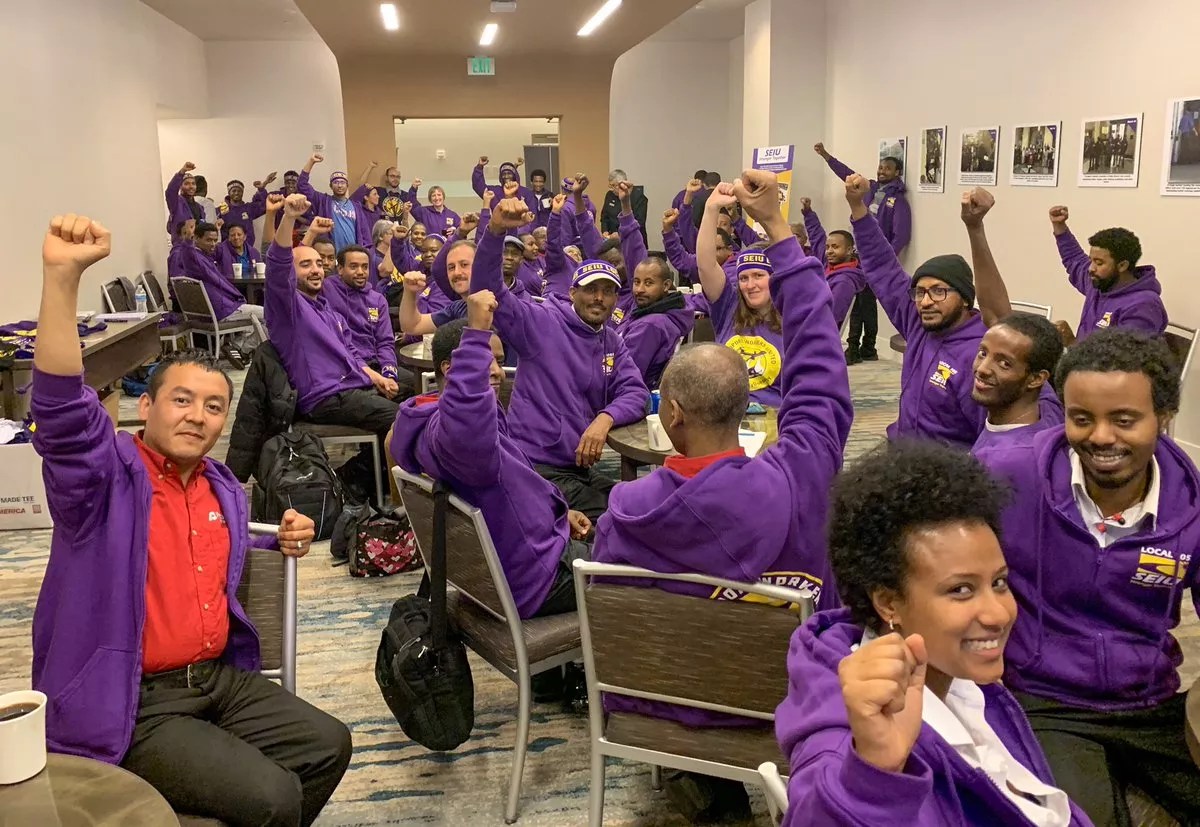

Audio By Carbonatix
As state and federal lawmakers begin developing plans to address the economic fallout from the coronavirus pandemic, Colorado labor organizers are sending leaders a clear message: Help people, not corporations.
“We’re hearing a lot of talk about a corporate bailout,” Ron Ruggiero, president of Service Employees International Union Local 105, said in a conference call today, March 17. “There needs to be a people’s bailout, so that people are protected economically, but also protected as much as possible from contracting this virus.”
With bars, restaurants, entertainment venues and other gathering spaces facing months-long shutdowns in Denver and many other cities across the country, the impact on workers in hospitality, retail and other service sectors is likely to be catastrophic. Union leaders say that assistance to those who were already struggling to keep up with rising living costs should be lawmakers’ top priority.
“No Colorado worker should be left behind due to circumstances outside of their control,” said Dennis Dougherty, executive director of the Colorado AFL-CIO. “Whether you or a loved one contract coronavirus, or you make the decision to provide care for your children whose schools have closed, or you find yourself without a job overnight – you should be allowed to rest your head on your pillow knowing that you will be treated with fairness and compassion.”
While advocates praised Governor Jared Polis’s decision to issue an emergency order last week requiring employers in some industries to provide paid sick leave for workers who are being tested for COVID-19, they urged policy makers to enact far more comprehensive paid-leave programs that will offer workers more security as the crisis continues to unfold.
“There’s a lot of uncertainty about what will happen to our families if we are placed in quarantine or get sick,” said Yuliana Guerrero, a Denver janitor and Local 105 member. “Because many of us are the breadwinners for our family, and we want to see how we will get help or receive our pay.”
Negotiations over a federal response to the COVID-19 pandemic continue in Washington, D.C., with President Donald Trump’s administration floating a package of payroll tax cuts and small-business loans, while members of Congress on both sides of the aisle are lining up behind plans for monthly cash payments of $1,000 or more to all or most American adults to help offset the impact of widespread layoffs and lost wages.
But workers on the front lines of Colorado’s response to the virus say that in addition to those plans, much more must be done in the short term to train, prepare and stockpile the supplies necessary for successful mitigation. A nationwide shortage of testing capacity has badly hindered efforts to respond effectively to the pandemic, while a slow and disorganized federal response has produced scenes like those at several U.S. airports last weekend, where thousands of arriving passengers were stuck in bottlenecks inside terminals as airline staff and customs agents struggled to implement new screening protocols.
Berhanu Ayele, a passenger-service agent at Denver International Airport, said on the March 17 conference call that he’s seen this lack of preparation firsthand. His responsibilities include helping passengers in wheelchairs – many of whom are at the highest risk of severe health effects from COVID-19 – move through the airport, but not much has changed since the onset of the pandemic.
“There seems to be little effort in training airport workers how to handle this crisis,” Ayele said. “As someone who pushes the most vulnerable passengers to their destinations, I am disappointed to see that the proper precautions are not being taken to clean the wheelchairs after every push.”
Jimmy Allen, an Aurora firefighter, echoed concerns about preparation, calling on policy makers to address the nationwide shortage of personal protective equipment, like the N95 masks used by health-care workers and first responders.
“N95 masks, or gowns – we simply just don’t have enough,” Allen said. “We have enough for a few calls, maybe, but now we have to pick and choose what calls we’re going to wear our protective measures on. We should be at a place right now where we don’t have to pick and choose, where we have every appropriate measure we need: masks, gowns, plenty of albuterol treatments, oxygen treatments. The supplies should be endless, but we’re just down and out everywhere for supplies.”
Whether it’s increasing the availability of critical supplies or taking proactive measures to replace lost wages and help impacted workers continue to pay their bills, labor leaders say that lawmakers, and Americans in general, should remember that we’re all in this together.
“This is the time to do right by workers,” Ruggiero said. “With paid sick time, and the supplies, equipment and training people need, this would actually benefit all of us. We are all connected at all times, but it certainly is being thrown into stark relief during this crisis.”